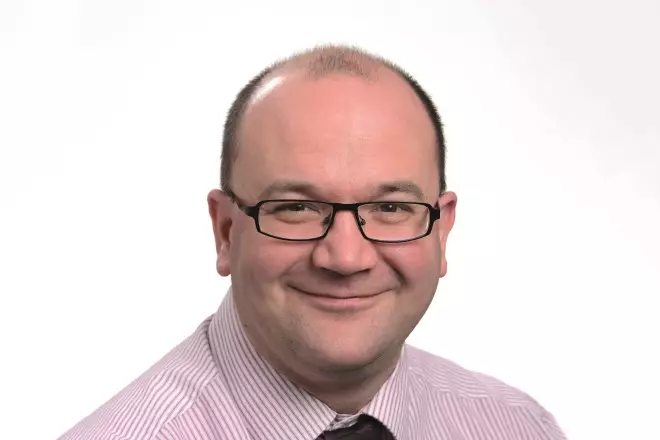
Shutterstock.com
Many pharmacy technicians possess a number of skills required to progress towards a more clinically-focused role and have the potential to become great pharmacists.
The attraction of career prospects, job security and higher pay as a pharmacist can tempt technicians to consider retraining. However, there is no standard or accepted route to progress from technician to pharmacist, and the financial, academic and lifestyle barriers can be difficult to overcome.
At present, the five-year (including preregistration training) MPharm degree remains the only way to a career as a pharmacist. Entry criteria for this course require a technician to have a credible level 3 science background. Commonly, this could include A-levels in chemistry and biology or distinctions in ‘Access to Science’ course modules that cover almost exclusively chemistry and biology. An individual’s previous pharmacy experience is not taken into account.
Funding obstacles
A technician who is used to a regular income and perhaps has a mortgage or other family commitments can struggle to return to higher education. The reality is that retraining is not an easy route for anyone, regardless of their personal circumstances.
Technicians who have retrained warn others that studying is hard and that they must be open-minded. This includes accepting that becoming a pharmacist requires a different thought process altogether.
Nevertheless, Andrew Adams, senior lecturer and admissions tutor for pharmacy at the University of Huddersfield’s School of Applied Sciences, says it is never too late to retrain. You just need to be able to support yourself through what is a long and often gruelling degree.

Source: Courtesy of Andrew Adams
Andrew Adams, senior lecturer and admissions tutor for pharmacy at the University of Huddersfield’s School of Applied Sciences, says technicians “should not underestimate the science content and the hard work involved” in retraining.
“Technicians make good pharmacists because they are getting into the role for the right reasons,” says Adams. “But they should not underestimate the science content and the hard work involved. You need drive for such a long course, but that often comes with age and experience.”
He believes it is good for the industry to train people who have worked with patients before and understand pharmacy “from the ground up”.
Adams followed the path himself in the 1990s after spending three years as a pharmacy technician in a hospital. He says there is an argument to be made about introducing a part-time pharmacy degree option, which would take longer, but would support individuals already working in the NHS.
One of his current students, Charlotte Dixon, admits that just getting on the course was a challenge.
As a former counter assistant and dispenser for a community pharmacy, she decided to study for A-levels in biology and chemistry at night school for two years and is now midway through the third year of her pharmacy degree which she is completing full-time.
“As I am in my 20s, the timings work for me because I do not have any real commitments,” Dixon says. “Having already worked in a community pharmacy I feel I have a bit of an advantage over the other students. The studies are hard but it is the end reward which keeps me going.”
A pharmacy degree could even be offered as an advanced level apprenticeship
Sarah Upton is a clinical pharmacist who began her career as a technician and, like Adams, would like to see more flexibility around retraining. She believes the pharmacy degree could even be offered as an advanced level apprenticeship.
Upton entered pharmacy after accepting an apprenticeship at a local hospital at the age of 16. She went on to work in a community pharmacy for a multiple, and by the age of 19 was a senior dispenser.
“I was doing well at a young age and started to think about my longer-term career. I saw what the pharmacists did and thought I could do that,” she says.
Upton won a place at the University of Huddersfield and funded her studies with locum work. “It was tough because I had my own flat and the lifestyle change was huge.” Today she works in medicines optimisation for NHS Barnsley’s Clinical Commissioning Group.
Barriers to retraining
Many technicians first consider the idea of becoming a pharmacist because it offers a broader science-led role.
Gill Risby, lead for pharmacy technical and support staff development at the School of Medicines Optimisation across Yorkshire and the Humber, has considered retraining twice during her long career.
“I got distinction grades when I qualified as a technician and the pharmacy manager said I should consider going to university but I was young and didn’t have the confidence,” Risby says. “I looked at it again after I’d had children but the universities I called were very dismissive because I did not have the right A-levels.”
Even Tess Fenn, president of the Association of Pharmacy Technicians UK (APTUK), came close to retraining, but other life commitments thwarted her ambitions.
“I don’t have any regrets because the pharmacy technician profession has advanced so much, but we could, perhaps, have clearer career pathways as an industry,” she says.
It is a similar story for Wendy Penny, who currently leads pharmacy technician training at the Wales Centre for Pharmacy Professional Education in Cardiff and has been a technician for 34 years.
“After completing my own training in 1982 I wrote to some of the schools of pharmacy and was told I had to complete A-levels. I decided to pursue a different career path because I didn’t want to go back to school,” she says.
She points out that many preregistration pharmacy technicians already have a degree and would find it difficult to give up a paid post to complete a second degree.
Financial restrictions
Daniel Dicker, APTUK’s national engagement officer, is also chief pharmacy technician at a local college. He admits it was mainly the financial burden which stopped him going to university.
His original career plan was to complete a law degree but he ended up working for — and eventually managing — a local community pharmacy.
“For a short time I did contemplate moving into hospital pharmacy, but you can have a very successful career and job satisfaction as a technician nowadays,” Dicker says. “Each role brings its own set of skills to care for patients. It is comparable to doctors and nurses.”
He cites the example of when a patient comes on to a ward and his thoughts are how to prepare the patient for when they go home. There is a clinical role around medications compliance and availability but the job is also highly operational and requires problem solving and management skills.
“The pharmacist’s first thought is to ensure the medications are safe to use and to assess the clinical aspects of the patient’s care, but sometimes they do not consider the whole patient journey.”
His story is not unusual. Student pharmacy technician George Button also thought about applying for an MPharm degree but instead chose to continue on his current course at West Suffolk Hospital in Bury St Edmunds.
There are a lot of mixed messages and information about how to become a pharmacist and this can put people off
“There are a lot of mixed messages and information out there about how to become a pharmacist and this can put people off,” Button says. “The challenging clinical work carried out by a pharmacist did appeal to me but I soon realised that a career as a technician offers more than I originally thought it might. I like fact checking, quality control and research so there are some great career opportunities.”
Nevertheless, Button has not completely ruled out retraining as a pharmacist in the future.
Whether or not they should retrain as a pharmacist is a quandary many technicians struggle with, often more than once during their careers. However, the decision often comes down to personal motivations, long-term career goals and personal circumstances — as Button says, a career as a technician can often offer more opportunity than commonly thought.

Source: Courtesy of Rebecca Burgoyne
Rebecca Burgoyne, rotational clinical pharmacist at University College London Hospitals, says other pharmacists have more confidence in her because of her technician experience and they trust her opinions and advice.
Rebecca Burgoyne’s journey from experienced technician to a rotational clinical pharmacist
Rebecca Burgoyne gained valuable insight into the clinical side of the industry while working as a community technician from 2009–2017 and also as a hospital technician in the private sector for Spire hospital group from 2010–2015. Rebecca has also worked as a technician in the prison sector and was eager to become a pharmacist.
She says the retraining process was tough but she is now a rotational clinical pharmacist at University College London Hospitals.
“Having been in a job for a number of years, it was difficult to return to being a student,” she says. “There was the lack of a regular income and it was difficult to work even part time because the training was so intense. It is frustrating that you cannot bypass certain modules of the degree. For example, I already had a qualification and vast experience in dispensing.”
She adds that being a mature student presented its own challenges. “Many of the students at university had never worked and had no experience in pharmacy. It was quite isolating.”
Nevertheless, Burgoyne would recommend that other technicians should consider retraining, because once qualified your previous experience is valuable.
“You learn skills as a technician that take years to hone and these are invaluable to you as a pharmacist,” she says. “Most technicians have worked their way up in pharmacy from the most junior positions and know the industry inside out. This means they can do their own job and have an understanding of every role within the pharmacy team.”
She says other pharmacists also have more confidence in her because of her technician experience and they trust her opinions and advice.
But what would she like to change about the re-training process?
“Transition should be made easier,” she says. “I found it very hard to fund my pharmacy degree and was lucky enough to get a grant. I have worked with some very talented technicians who would make fantastic pharmacists but they do not retrain due to the barriers put in front of them.”
Burgoyne suggests introducing a points system with technicians awarded credits towards a pharmacy degree, based on the experience they have already gained in the industry and their profession-specific qualifications.
“This would mean the total length of the course could be reduced or the total number of hours per week they need to attend university could be lower to enable them to work part time.”
Reading this article counts towards your CPD
You can use the following forms to record your learning and action points from this article from Pharmaceutical Journal Publications.
Your CPD module results are stored against your account here at The Pharmaceutical Journal. You must be registered and logged into the site to do this. To review your module results, go to the ‘My Account’ tab and then ‘My CPD’.
Any training, learning or development activities that you undertake for CPD can also be recorded as evidence as part of your RPS Faculty practice-based portfolio when preparing for Faculty membership. To start your RPS Faculty journey today, access the portfolio and tools at www.rpharms.com/Faculty
If your learning was planned in advance, please click:
If your learning was spontaneous, please click:


